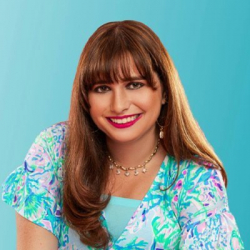Throughout Women’s History Month, there has been significant talk of the pay inequities that women face, including a viral Twitter account calling out every single wage gap at companies that celebrated women’s achievements. The gender pay gap historically has held steady, though in some major metropolitan areas, young women are out-earning or being paid equally to their male counterparts.
However, these efforts overlook the disability pay gap, especially for disabled women. Historically, disabled people have been disproportionately affected by unemployment and wage disparities compared to nondisabled populations. Our community is more likely to have self-employed and part-time workers than nondisabled populations for a variety of reasons: the flexibility, or even the asset limits put in place in order to receive benefits under Social Security.
The women’s pay gap is particularly notable. People with disabilities make about 68 cents for every dollar earned by nondisabled people, and the disability wage gap is not just an American problem, but one that occurs worldwide. In fact, there are more women with disabilities than men with disabilities across all age groups, and they make about 72 cents for every dollar earned by disabled men. Disabled women are also far less likely to be employed than nondisabled women, according to a 2017 report from Respect Ability.
As a woman with a disability, it’s disappointing to see, and the wage gap is highlighted even more in traditional “professional” or “white collar” type jobs, including my initial profession: law. Disabled lawyers, on average, earn less than their nondisabled counterparts – especially when considering we have to work harder to get as far, only to be paid less is disheartening. The Americans with Disabilities Act (ADA) promises nondiscrimination or a prohibition against discrimination for workers with disabilities, but it’s hard to believe it fulfills its obligation. Wage disparities persist on a variety of factors, including disability, race, gender, etc. I’m relatively privileged, and still I have experienced professional barriers at the intersection of ableism and sexism.
So, how do we fix this? There’s not one right place to start, unfortunately, but transparency would be a great start. And, if you’re talking about #BreakTheBias, or women’s work being somehow undervalued – best believe you better be including disabled women, too.
About the Guest Author

Haley Moss, Esq.
Haley Moss made international headlines for becoming the first documented openly autistic attorney admitted to The Florida Bar. She received her Juris Doctor from the University of Miami School of Law in 2018 and graduated from the University of Florida in 2015 with her B.S. in Psychology and B.A. in Criminology. Haley is a speaker, educator, scholar, and consultant on neurodiversity at work, the Americans with Disabilities Act, autism, and disability-adjacent topics.
